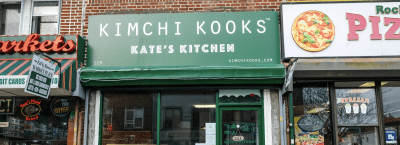It’s Good That Cops Turned Their Backs On De Blasio at a Funeral Again
Some, but not all, cops turn their backs as @BilldeBlasio speaks at Liu funeral. #NYPD pic.twitter.com/Jap0HQhvdu
— thomas macmillan (@TRMacM) January 4, 2015
Yesterday, police officer Wenjian Liu was laid to rest with a funeral service that had been delayed until a date when his family members could fly in from China. Along with Officer Rafael Ramos, Liu was murdered in Bed-Stuy on December 2oth by Ismaaiyl Brinsley, who subsequently killed himself. A funeral for Ramos was held last week, on December 27th. The murders of these two officers came after weeks of protests in New York City incited by a Staten Island grand jury’s decision not to indict NYPD officer Daniel Pantaleo in the death-by-chokehold of an unarmed black man, Eric Garner. While the protests in New York had been overwhelmingly peaceful, the attendant rhetoric—besides being explicitly accusatory toward the police force as a whole—ranged from passive chants (“We can’t breathe”) to obviously aggressive ones (“Kill the police”). Yet the protests remained relatively non-violent, and not only was the amount of arrests of protesters remarkably low, but marchers were given far more leeway to do things like shut down major traffic arteries (the Brooklyn Bridge, the West Side Highway) than one could imagine they would have had under past mayoral administrations.
It’s impossible to say if this type of peaceful protestor/police interaction would have lasted much longer—a flare-up of aggression on the Brooklyn Bridge on December 18th seemed to signal the end of this inherently tenuous equilibrium—because following the deaths of Liu and Ramos, tensions between the NYPD and the people it serves (aka you, me, and everyone you know… including the mayor) flared to a perhaps all-time high. First came the way that police officers turned their backs on Mayor de Blasio when he went to Woodhull Hospital to see the families of Liu and Ramos and to make a statement; next came the statements from official NYPD spokespeople like Pat Lynch, head of the PBA, in which de Blasio was accused of having “blood on his hands”; and then came Officer Ramos’s funeral, during which countless police officers turned their backs on de Blasio while he spoke—this in spite of the fact that de Blasio had called for a moratorium on protests in honor of the slain policemen. Apparently, the police don’t have a problem with protests when they’re the ones conducting them.
Prior to Liu’s funeral this weekend, Police Commissioner Bill Bratton released a department-wide memo asking officers not to protest at the funeral, writing: “A hero’s funeral is about grieving, not grievance.” But based on photos taken yesterday, hundreds, if not thousands, of officers ignored this request. While not all of the cops present were members of the NYPD (in fact, thousands were definitely not from New York City, but attended in a show of solidarity) and not all officers chose to turn their backs, the sheer number of policemen and women who engaged in this protest—and even the seeming reluctance with which some of them participated—demonstrates all you need to know about how the police force as a whole operates. And that’s a good thing.
It’s a good thing to have a reminder that police leadership in the form of Pat Lynch ( which, how any critically thinking police officer could deride de Blasio for fraternizing with Al Sharpton while having similarly incendiary blowhard Lynch as a spokesperson is baffling) has so little respect for the mayor—not to mention the significant majority of people in this city who voted for him—that it has turned funerals into fair game for protests, making the PBA not so different really than groups like the Westboro Baptist Church. It’s a good thing to have a reminder that, sure, “not all cops” (see photo below) will engage in this type of divisive protest, or are susceptible to such contemptible rhetoric as Lynch and his ilk espouse, but that, in fact, many will engage and are susceptible. It’s a good thing to be reminded that the NYPD seems to think it’s punishing this city for the sin of not loving it enough by dramatically decreasing the number of petty offense arrests it makes and tickets it writes. Of course, rather than being much of a punishment for the citizens of New York (none of whom seem to be complaining all that much about not getting ticketed or harassed for minor reasons), it’s only a punishment to the city’s coffers, which have long depended on this kind of income. It’s good to have a reminder that some of these cops probably wouldn’t have turned their backs on the mayor if so many others around them hadn’t done so, but that majority rules in situations like this, and cops are as susceptible to peer pressure as your average 8th grader, only the stakes are a lot higher.
But mostly, it’s a good thing that so many cops turned their backs on de Blasio at a funeral again, because it’s important to have this visual reminder that while the NYPD’s motto is “to protect and serve,” first and foremost among who they protect and who they serve is themselves. So even though police officers might self-righteously claim that de Blasio “doesn’t have our backs,” let’s not forget that those officers all have each other’s backs pretty securely. But people like Eric Garner and Akai Gurley and so many others? Those are the people who still need protection and people to fight for them, whether the police like it or not.
Follow Kristin Iversen on twitter @kmiversen
Two men with enough integrity to not turn their backs on the Mayor at Officer Wenjian Liu’s funeral. pic.twitter.com/e8ZV7H6lpQ
— Thomas (@rx) January 4, 2015
You might also like 




















